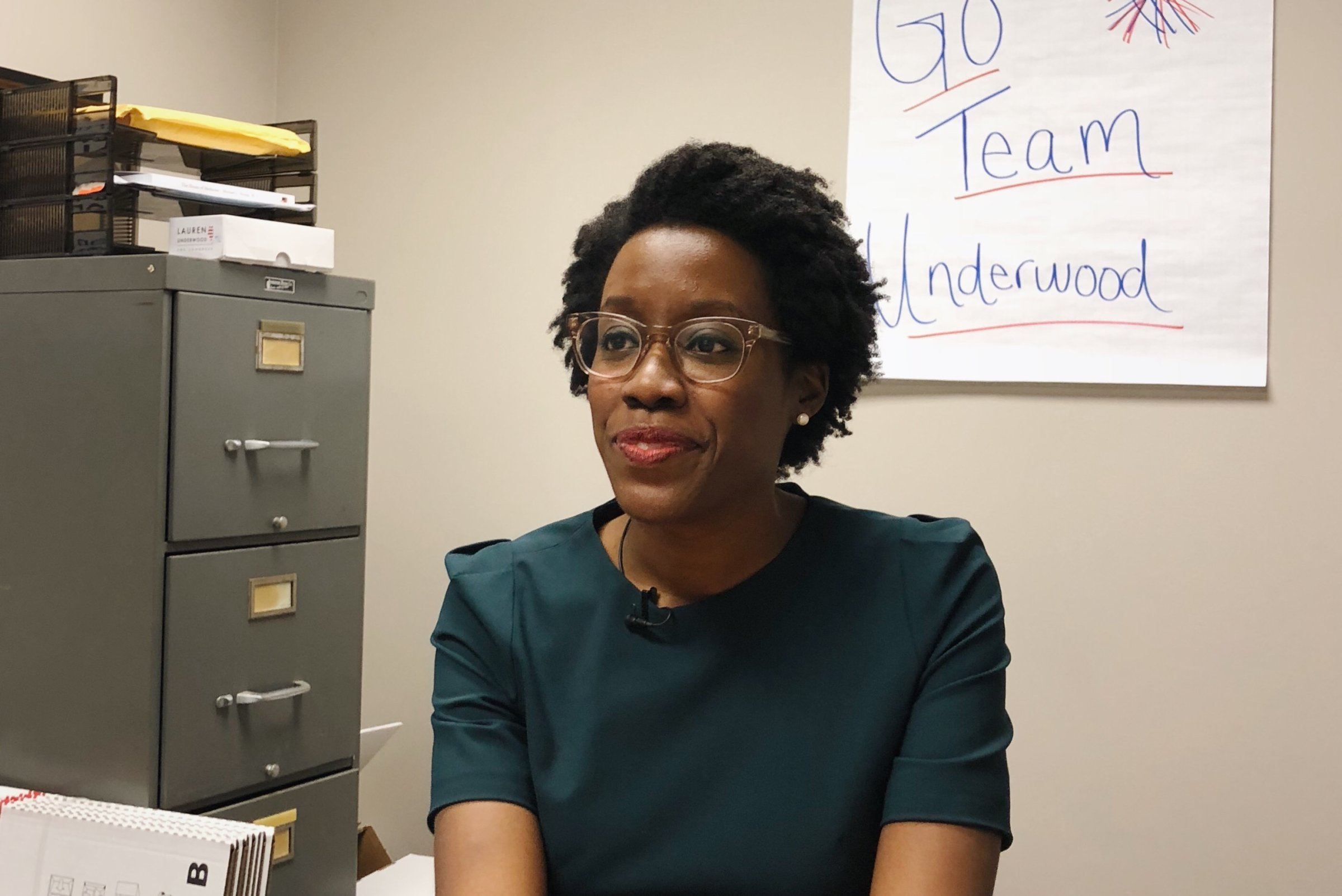
Lauren Underwood is not supposed to win in Illinois’ 14th district. She’s a Democrat running against a Republican incumbent who won two years ago by nearly 20 points; a former Obama administration official in a district that voted for Mitt Romney and Donald Trump; a young black woman pitching voters who are mostly middle-aged, overwhelmingly white, and have never sent a woman to the House of Representatives.
But with just days until the election, Underwood, a 32-year old registered nurse, has mounted a strong challenge to Republican Randy Hultgren. The district, once safely Republican, is now considered a toss-up. And it‘s all because of health care.
In April of 2017, as the GOP-led Congress began to explore a repeal of the Affordable Care Act, Hultgren, who has represented the district since 2011, told constituents at a town hall that he was “committed to voting no” on any health care plan that would allow insurance companies to deny coverage to people with pre-existing conditions.
“I took him at his word,” Underwood told TIME in an interview at her office on Halloween. “I said okay, at least we know that whatever might move forward out of the Congress would include protections for people like me.” (Underwood, who worked in the Department of Health and Human Services under Obama, has a heart condition called supraventricular tachycardia, which keeps her heart from maintaining a normal rhythm.)
Less than a month later, Hultgren voted for the American Health Care Act, the GOP health-care plan that would have weakened protections for pre-existing conditions. (In a statement on his website, Hultgren said that he had “great concerns” about the AHCA, but that “doing nothing isn’t an option.”)
“Then I was mad,” Underwood says. “I’m not someone that thinks that my representative and I have to agree 100% on everything. But I do think that when they make a promise, they should keep their word.” Underwood filed paperwork to run for the Democratic nomination, and ended up beating six white men in the Democratic primary, winning 57% of the vote. Now she’s locked in a close race, and bolstered by a fundraising advantage: she’s pulled in almost $4 million, double what Hultgren has raised.
Underwood’s momentum is a testament to the importance of health care in this year’s election, even among voters who may have been initially skeptical of the ACA. It’s the top campaign issue for many Americans: 30% of voters say health care is the most important issue of the midterms, according to an October poll by the Kaiser Family Foundation, and more Democrats and Independents list it as their top concern in this election than any other issue. A poll conducted by TIME and SSRS found that women overall cite health care as their top political priority. Some 60% of pro-Democratic ads in the weeks leading up to the midterms have mentioned health care, compared to just 10% of ads in 2016, according to the Wesleyan Media Project.
The political tide on the topic is turning, and it’s boosting candidates like Underwood. A Washington Post-ABC poll found that most voters trust Democrats over Republicans when it comes to their health care, while a Fox News poll found that voters who say health care is extremely important favor Democrats by 24 points. That’s one reason why many Republican candidates this cycle have promised to protect pre-existing conditions, even as they have pushed to weaken the ACA. “It’s such a lie,” Underwood says. “I think it insults the intelligence of the voters.”
Still, the issue may be confusing some voters even as it mobilizes the Democratic base. “Most people who are really swing voters don’t have a strong sense that they really trust one party over another,” says Brian Gaines, a professor of political science at the University of Illinois. “I suspect the issue works better for mobilizing her base than for winning over the undecided, on the fence moderates.
At a rally for Underwood on Halloween, supporters overwhelmingly cited health care as the major issue for them in this campaign. “Her message on health care is really resonating,” says Brian McSherry, 50, a business representative with a local sheet metal workers union. “Randy has voted almost 70 times to get rid of the ACA.” Jeff Moran, a 64-year old software engineer, said the whole election boiled down to “one issue: health care.”
More Must-Reads From TIME
- The 100 Most Influential People of 2024
- The Revolution of Yulia Navalnaya
- 6 Compliments That Land Every Time
- What's the Deal With the Bitcoin Halving?
- If You're Dating Right Now , You're Brave: Column
- The AI That Could Heal a Divided Internet
- Fallout Is a Brilliant Model for the Future of Video Game Adaptations
- Want Weekly Recs on What to Watch, Read, and More? Sign Up for Worth Your Time
Write to Charlotte Alter/St. Charles, Ill. at charlotte.alter@time.com